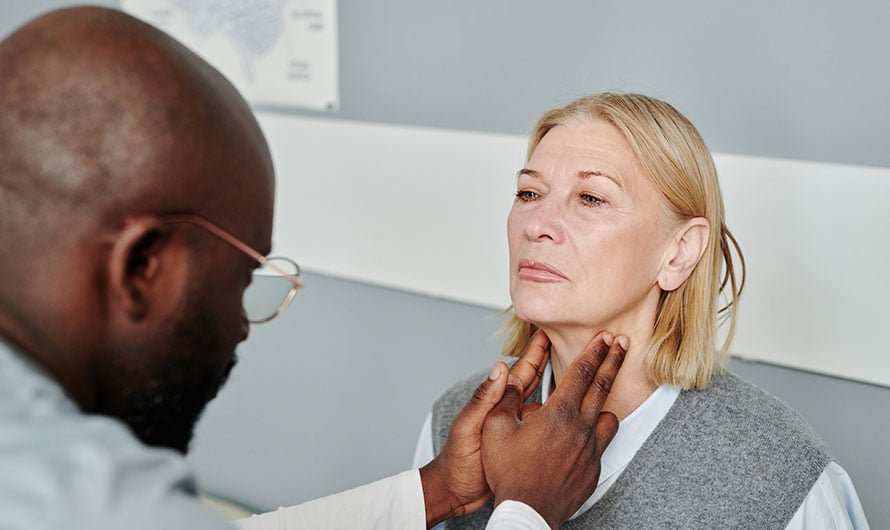Esophageal Cancer Causes and Risk Factors
Esophageal cancer is a tumor that originates in the esophagus, a long muscular tube that moves food from the throat to the stomach. In the United States, esophageal cancer accounts for 1% of all cancer cases, although it is more common in other parts of the world.
What causes esophageal cancer?
Although scientists do not yet fully understand the precise causes of esophageal cancer, they have determined that, like most cancers, it results from harmful changes to the DNA inside cells. DNA is the chemical that controls all cellular function, instructing cells on when to grow, divide and die. Damaged DNA can cause cells to grow uncontrollably and live beyond their normal lifespan. The abnormal cells can then accumulate, bind together and form tumors.
Some DNA mutations are passed down in families, but only a small number of esophageal cancers are hereditary. Instead, experts believe most of the gene mutations that lead to the development of esophageal tumors are acquired after birth, most likely due to risk factors.

Esophageal cancer risk factors
Researchers have identified several risk factors for esophageal cancer. Most notably, chronic irritation of the esophagus can cause harmful cellular changes that may lead to tumor development.
Esophageal cancer risk factors that cannot be controlled
Many esophageal cancer risk factors are not lifestyle-related but rather pre-existing medical conditions that can irritate the esophagus and cause cancerous changes over time. These include:
- Bile reflux or gastroesophageal reflux disease (GERD), which occurs when bile or stomach acid backs up into the esophagus
- Barrett’s esophagus, a complication of GERD that occurs when the lining of the esophagus heals abnormally and changes from cells that resemble skin cells to cells that resemble intestinal cells
- Achalasia, a rare swallowing disorder in which the esophageal muscles do not contract properly to propel food toward the stomach
- Tylosis, a rare thickening of the skin of the hands and feet, which is also associated with an extraordinarily high risk of esophageal cancer
- Plummer-Vinson syndrome, an uncommon condition that often occurs in people who have long-term iron-deficiency anemia
- Human papillomavirus (HPV), a common sexually transmitted infection
- A traumatic injury to the esophagus, which can result from swallowing a foreign object or caustic substance, a direct blow in a car accident or excessive strain from vomiting or weightlifting
Esophageal cancer risk factors that can be controlled
Several risk factors for esophageal cancer can be avoided or reduced. For instance, smoking cessation is an important preventive measure. The use of tobacco products—including cigars, cigarettes, pipes and chewing tobacco—can introduce carcinogens directly into the esophagus.
Alcohol consumption is also a known risk factor for esophageal cancer. When alcoholic beverages are ingested, the body metabolizes the alcohol content into acetaldehyde, a toxic substance. Acetaldehyde can directly damage the DNA in the cells of the esophagus, increasing the risk of mutations that can lead to tumor growth. Significantly, the risk of esophageal cancer is directly related to the amount and frequency of alcohol consumption. Heavy drinkers, in particular, face a substantially elevated risk, which increases even further when alcohol consumption is combined with other risk factors, such as smoking.
Another controllable risk factor for esophageal cancer is exposure to certain carcinogens, such as chemical fumes and dry cleaning solvents, which can irritate the esophagus.
Finally, while poor nutrition and obesity can increase the risk of esophageal cancer, these factors are not believed to be stand-alone causes.
Frequently asked questions (FAQs) about esophageal cancer causes and risk factors
The following FAQs-related articles provide additional information about esophageal cancer causes and risk factors:
- Can gastrointestinal reflux disease (GERD) lead to esophageal cancer?
- Can vaping cause esophageal cancer?
- What environmental factors contribute to your risk of esophageal cancer?
Benefit from world-class care at Moffitt Cancer Center
At Moffitt, we are proud to be firmly positioned at the forefront of esophageal cancer research. Our scientists and clinicians are continually learning more about how esophageal cancer develops and how it can be prevented and treated. In recognition of our notable scientific achievements, the National Cancer Institute has designated Moffitt a Comprehensive Cancer Center.
If you would like to explore your esophageal cancer risk profile with a specialist in the Gastrointestinal Oncology Program at Moffitt, you can request an appointment by calling 1-888-663-3488 or submitting a new patient registration form online. We do not require referrals.
